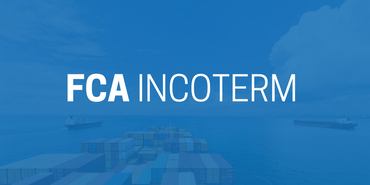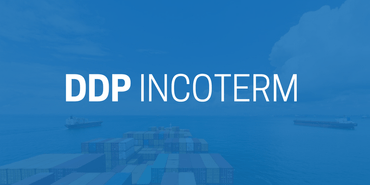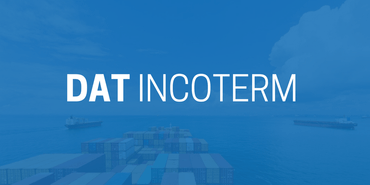
Definition of the Incoterm DAP (Delivered at Place)



![]()
The DAP Incoterm was first introduced in Incoterms 2010 and remains unchanged in the 2020 version. It replaces the former DDU term from the 2000 edition.
Under this term, the seller must place the goods at the disposal of the buyer at the agreed destination, ready for unloading.
The seller is not responsible for unloading, import customs clearance, or the payment of VAT, excise duties, or import tariffs.
The buyer assumes these procedures and costs once the goods arrive at the agreed point.
In practice, DAP places most of the logistical burden on the seller, making it—alongside DDP—one of the preferred Incoterms for exporters who want to offer a high level of service.
Versatile: DAP can be used with any mode of transport.
Changes in Incoterms 2020
The 2020 update of the Incoterms introduced a few key changes aimed at clarifying responsibilities and better reflecting modern trade practices. One of the most notable updates was the replacement of the term DAT (Delivered at Terminal) with DPU (Delivered at Place Unloaded). This change emphasizes that goods can be delivered at any place, not just a terminal, provided they are unloaded.
However, DAP (Delivered at Place) remained unchanged. The seller’s and buyer’s responsibilities under DAP are exactly the same as in the 2010 version, maintaining its relevance and popularity among exporters who want to offer more control over logistics without handling import procedures.
| Relevant Changes | Impact on DAP |
|---|---|
| DPU (Delivered at Place Unloaded) replaces DAT | No changes to DAP; obligations remain as in 2010 |
Seller’s Obligations (DAP)
- Delivery of goods and contractual documentation
- Proper packaging and labeling
- Inland transportation in the country of origin
- Export customs clearance and payment of export duties
- International transport (air, sea, road, etc.)
- Destination charges (port or airport handling fees)
- Inland transport in the destination country to the agreed place
Buyer’s Obligations (DAP)
- Payment for the goods as per the contract
- Import customs clearance at the destination
- Payment of VAT, excise duties, and import tariffs
- Unloading the goods from the mode of transport
Insurance under DAP Terms
Neither party is contractually required to take out insurance, but it is common for the seller to insure their part of the responsibility (and often the entire logistics chain).
In any case, it is advisable to specify in the contract:
- Type and scope of the insurance policy
- Responsibilities for each transport segment
- Claims procedures
Risks of Delays and Extra Costs at Destination
Exporting under DAP allows the seller to negotiate competitive rates with carriers or freight forwarders, but also increases exposure to costs from:
- Detention and demurrage
- Customs inspections or holds
Before finalizing a DAP sale, check:
- Knowledge of customs procedures in the destination country
- Local presence of your freight forwarder or agent to expedite processes
- Storage conditions and potential fees from the Port Authority or logistics operator
Sources and References
- ICC – International Chamber of Commerce
Official Incoterms 2020 information and rules. - International Trade Administration (U.S. Department of Commerce)
Incoterms overview and guidance for exporters. - Export.gov (U.S. Government Portal for Export Assistance)
Resources and explanations on Incoterms including DAP. - Institute of Export & International Trade (UK)
Detailed breakdown of Incoterms 2020 including DAP obligations. - Trade Finance Global
Helpful guide with diagrams and use cases for each Incoterm.
Related Articles


